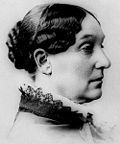- Oregon Ballot Measure 25 (2002)
-
Ballot Measure 25 of 2002 increased Oregon's minimum wage from $6.50 to $6.90 per hour and required an annual increase to compensate for inflation in future years. Inflation is measured by the consumer price index. As of 2011[update], the minimum wage in Oregon is $8.50 an hour. The measure was approved in the November 5, 2002 general election with 645,016 votes in favor, 611,658 votes against.[1] The measure was placed on the ballot as a result of initiative petition.[1]
Contents
Arguments for and against
Proponents included labor unions, the Oregon Catholic Conference, and other advocates for the poor. They pointed out the difficulty of raising a family on the current minimum wage, and argued that tying the minimum wage to inflation was more fair. Rather than teenage workers, supporters argued that many minimum wage earners were adults supporting children.[2]
Opponents feared that a minimum wage increase would prolong the recession Oregon was experiencing at the time, pointed out that Oregon already had a relatively high minimum wage (compared with other U.S. states), and argued that indexing the wage to the consumer price index would unfairly punish rural communities, since the CPI is based on prices in cities.[3]
See also: minimum wageDetailed history
The measure was sponsored by future Oregon Commissioner of Labor and Industries Dan Gardner and state Representative Diane Rosenbaum.[4]
In 2003, the Republican-controlled Oregon House of Representatives approved a bill (House Bill 2624) that would repeal the part of Measure 25 that ties the minimum wage to inflation.[5] As of April 2003, however, observers did not expect the bill to pass the Oregon State Senate (which was then evenly split between Republicans and Democrats) or be signed by Democratic Governor Ted Kulongoski.[6] The bill was not taken up in the Senate's 2003 session,[7] and the Senate is now majority Democrat, suggesting it is unlikely to be taken up in the foreseeable future.
See also
References
- ^ The measure is codified as enacted at ORS 653.025.
- ^ Measure 25 - Arguments in Favor
- ^ Measure 25 - Arguments in Opposition
- ^ Sinks, James (November 7, 2005). "Oregon lawmakers turn to initiatives more frequently". The Bend Bulletin. http://www.bendbulletin.com/apps/pbcs.dll/article?AID=/20051107/NEWS0107/511080302/1001=. Retrieved 2007-05-31.
- ^ Esteve, Harry (April 2, 2003). "Minimum wage raise killed in house bill". The Oregonian.
- ^ Public NewsRoom
- ^ http://www.leg.state.or.us/cgi-bin/searchMeas.pl
- Statesman-Journal article, January 1, 2004
External links
- Oregon Voter's Guide page for Measure 25--includes ballot title, text of the measure, and arguments for and against
Topics in Oregon legislation Crime and sentencing Capital punishment · Measure 11 (1994) (mandatory minimum sentencing) · Measure 40 (1996) etc. (victims' rights) Abigail Scott Duniway was instrumental in establishing women's right to vote in Oregon.
Abigail Scott Duniway was instrumental in establishing women's right to vote in Oregon.
Elections and voting Gay rights Environment Land use Health care Minimum wage Measures 36 (1996), 25 (2002)Taxation Tax revolt · Measure 5 (1990) (landmark tax law) · Measures 47 (1996) and 50 (1997) (adjusted Measure 5) · Kicker (tax rebate)Miscellaneous Influential people Background, further reading Categories:- 2002 in law
- Minimum wage
- Oregon 2002 ballot measures
Wikimedia Foundation. 2010.
